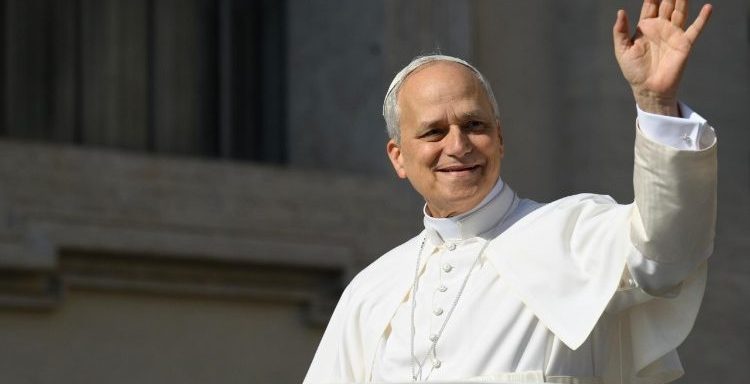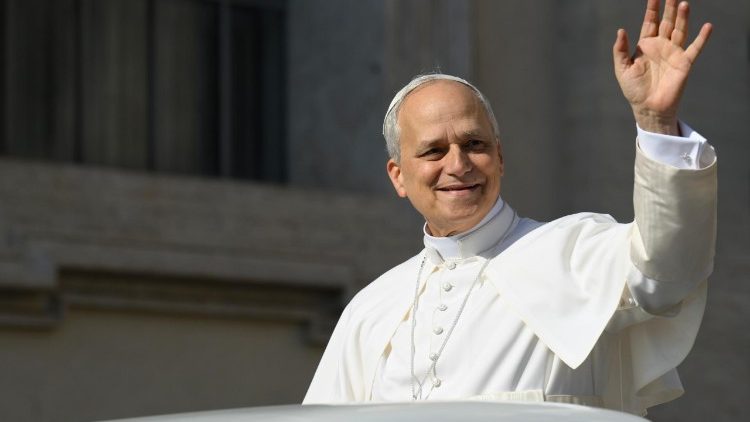(Vatican) – In a message addressed to participants of the 28th General Assembly of the International Federation of Catholic Universities (IFCU), held in Guadalajara, Mexico, Pope Leo XIV on Monday offered a reflection on the role of Catholic universities in today’s world, urging them to remain rooted in Christ as the source of wisdom and truth.
Catholic universities are called to become “paths of the mind toward God,” because, as Saint Thomas Aquinas understood, in “Christ-Wisdom is found, at the same time, what is most proper to our faith and what is most universal to human intelligence.” Precisely for this reason, wisdom, understood in this way, “is the natural place of encounter and dialogue with all cultures and all forms of thought.” This was emphasized by Pope Leo XIV in his message, in Spanish, to the participants in the 28th General Assembly of the International Federation of Catholic Universities (IFCU), which opened today, July 28, in Guadalajara, Mexico. Hosted by the University of the Valley of Atemajac (UNIVA), the meeting will continue until August 1 and celebrates IFCU’s centenary, reflecting on the theme “Catholic Universities, Choreographers of Knowledge.”
Universities: A pathway of the mind toward God
Yet, Pope Leo warned, the contemporary cultural landscape is filled with “the songs of the sirens”, ideas that are appealing for their novelty, popularity, or apparent certainty. In contrast, Catholic universities are called to be a pathway “of the mind toward God,” echoing the thought of St. Bonaventure.
Quoting from the Church Fathers, including St. Augustine and St. Paul, the Pope highlighted the enduring need for Catholic institutions to illuminate the human spirit by anchoring knowledge in divine truth.
“The soul, left to itself, has neither light nor strength,” he said, citing Augustine. “It darkens when it turns away from the source of immutable truth and is illumined when it draws near.”
In this light, the Pope affirmed that the university environment, marked by dialogue and intellectual plurality, is not alien to the mission of the Church.
Engaging with diverse views
From the early days of evangelisation, Christians understood the importance of engaging with diverse worldviews. He recalled how St. Paul challenged the Roman Christians to examine the fruits of their former ways of life, underscoring that without Christ, human wisdom ultimately leads to death.
“Christ is not a stranger to rational discourse,” Pope Leo said, “but rather the keystone that gives coherence and meaning to all our thoughts, hopes, and efforts to improve life and find purpose.”
Reflecting on the thought of St. Thomas Aquinas, the Pope noted that Christ as Wisdom is both central to faith and accessible to universal human reason.
Quoting from Aquinas’ Commentary on the Sentences, he stressed that wisdom, whether seen as a natural intellectual capacity or a divine gift, “concerns above all the divine,” and offers a firm foundation for dialogue with all cultures and schools of thought.
The strength of the Christian identity
Catholic universities, he affirmed, should not distance themselves from Christ or relativise His unique role in the name of academic discourse. Rather, they are to engage respectfully and fruitfully with all traditions of knowledge, precisely from the strength of their Christian identity.
Concluding his message, Pope Leo XIV expressed his hope that Christ-Wisdom – the Truth made Person, who draws the world to Himself – would be the guiding compass for all Catholic higher education institutions.
“May the loving knowledge of Him be the impulse for a new evangelisation in the field of Catholic higher education,” he said.
The Holy Father imparted his Apostolic Blessing to all those present at the Assembly and to the institutions they represent.
Let us not distance ourselves from Christ in order to engage in dialogue with other cultures.
Thus, Saint Thomas, for Leo XIV, clearly understood “that in Christ-Wisdom there is, at the same time, what is most proper to our faith and what is most universal to human intelligence, and precisely for this reason, wisdom, thus understood, is the natural place of encounter and dialogue with all cultures and all forms of thought.” He writes in his Commentary on the Sentences that wisdom, whether “an intellectual capacity or a gift [from God], refers above all to the divine.”
“Therefore, we must not distance ourselves from Christ, nor relativize his unique and proper place, in order to engage respectfully and fruitfully with other schools of knowledge, both ancient and recent.”
Christ-Wisdom as the Impulse of a New Evangelization
The Pontiff’s final wish, before his blessing, is that “Christ-Wisdom—Truth made Person, who draws the world to Himself—may be the compass that guides the work of the university institutions you preside over, and that his loving knowledge may be the impetus for a new evangelization in Catholic higher education.”
Opening Day of the IFCU General Assembly
The opening ceremony was introduced by Isabel Capeloa Gil, President of IFCU and Rector of the Portuguese Catholic University; Brother Ramírez Yáñez, Rector of Univa; Cardinal José Francisco Robles Ortega, Archbishop of Guadalajara; and Cardinal José Tolentino de Mendonca, Prefect of the Dicastery for Culture and Education. Archbishop Paul R. Gallagher, Secretary for Relations with States and International Organizations, spoke at the inaugural conference on academic diplomacy. He was joined by Archbishop Joseph Spiteri, Apostolic Nuncio to Mexico; Miriam Coronel Ferrer, former chief negotiator in the Philippine peace process and member of the UN Higher Mediation Panel; and François Mabille, Secretary General of IFCU.
Source: Alessandro Di Bussolo ; Vatican News


